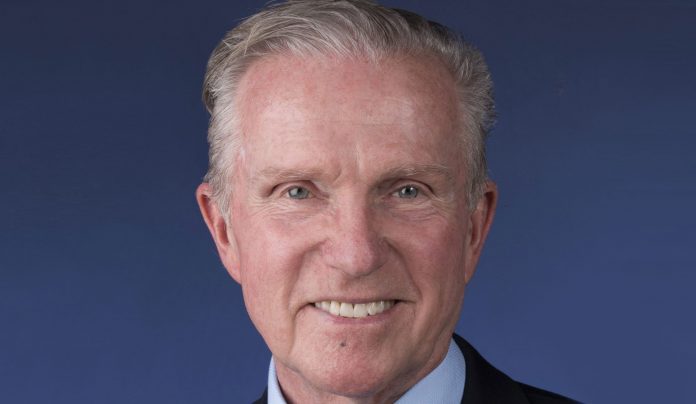As part of my clinical research on lived experience in physicians, I recently interviewed a retired California urologist, William Lynes, MD. Although we’ve never met in person, we’ve communicated a lot over the internet this past year. He reached out to me last May about ways in which we might collaborate in the field of physician health, specifically addressing burnout, depression, and suicidality in doctors.
In this context, individuals with lived experience are people who have suffered from a psychiatric illness, often with suicidality, and have made the brave decision to go public—to talk about it, to write about it, and to selflessly help others. I have focused on this before in this blog. Dr. Lynes is an example of a physician with lived experience. His gripping account of his medical and psychiatric symptoms, overwhelming despair, and near lethal suicide attempt, “The Last Day,” was published in 2016.1 More recently, his article “Quitting Medicine: A disgraced survivor of a bloody suicide attempt” was published in 2019.2
Patrick W. Corrigan, PsyD, has published extensively about the stigma attached to mental illness, its subtypes, and its corrosive effects on self-esteem and life chances.3 His work includes the notion of challenging self-stigma and he offers mechanisms for change. I especially like his hierarchy of disclosure strategies:4
- Social avoidance: Stay away from others so they do not have a chance to stigmatize me!
- Secrecy: Go out into the world – work and go to church – but tell no one about my illness.
- Selective disclosure: Tell people about my illness who seem like they will understand.
- Indiscriminate disclosure: Hide it from no one.
- Broadcast: Be proud. Let people know.
I thought of this categorization when I was interviewing Dr. Lynes. I said “Your decision to talk about your illness and its treatment is a gallant one. I thank you for that. Tell us how and why you decided to write and lecture about something so deeply personal—and stigmatized in the house of medicine?” He told me that in 2015, he attended a conference in Taos, New Mexico on physician writing. While he was there, he met another physician who had published a narrative on her struggles with a psychiatric illness. This really intrigued him and upon returning home, with the support of his family and psychiatrist, he submitted his piece to the Annals of Internal Medicine. It was immediately accepted. He added that he really didn’t consult any medical colleagues and said “Up until that time I was nearly a hermit, especially avoiding other physicians.” This step, and the supportive response from physician readers, opened the door for him to feel welcome back into the club of medicine.
Later in the interview, I told him that I have several physician friends, colleagues, and patients who are open with other doctors about having suffered from depression and how much they’ve been helped with treatment. Then I said, “But some of them have whispered to me that they don’t reveal that they attempted suicide. Do you have any thoughts about that Bill? Might that be another facet of stigma?” What he said to me is very powerful: “Suicide attempts are the ultimate thing to confess. For me, I needed to do that to heal.”
Dr. Lynes believes that the results of publishing his story—and lecturing to medical students and physicians—are all positive. He feels much better about himself, a recurrent and disturbing dream of being a failure in medicine has stopped, he’s proud to call himself a physician again, and it increasingly feels to him that sharing his story is helping others who are suffering. And, I would agree! Thank you, Dr. Lynes.
References
- Lynes W. The last day. Annals of Internal Medicine. 2016;164(9):631.
- Lynes W. Quitting medicine: a disgraced survivor of a bloody suicide attempt. KevinMD. Published October 19, 2019. Accessed February 6, 2020.
- Corrigan PW. On the stigma of mental illness: practical strategies for research and social change. Washington, DC: American Psychological Association; 2005.
- Corrigan PW, Rao D. On the self-stigma of mental illness: stages, disclosure, and strategies for change. The Canadian Journal of Psychiatry. 2012;57(8):464-469.
Dr. Myers is Professor of Clinical Psychiatry and immediate past Vice-Chair of Education and Director of Training in the Department of Psychiatry & Behavioral Sciences at SUNY-Downstate Medical Center in Brooklyn, NY. He is the author of 8 books, the most recent of which are “Why Physicians Die by Suicide: Lessons Learned from Their Families and Others Who Cared” and “The Physician as Patient: A Clinical Handbook for Mental Health Professionals” (with Glen Gabbard, MD). He is a specialist in physician health and has written extensively on that subject. Currently, Dr. Myers serves on the Advisory Board to the Committee for Physician Health of the Medical Society of the State of New York. He is a recent past president (and emeritus board member) of the New York City Chapter of the American Foundation for Suicide Prevention.
The views expressed on this blog are solely those of the blog post author and do not necessarily reflect the views of the Psychiatry & Behavioral Health Learning Network or other Network authors. Blog entries are not medical advice.
This blog was first published on 06 February 2020 on Psychiatry & Behavioral Health Learning Network
And here is a link to the podcast of an interview with Dr Michael Myers and Dr William Lynes










I find this a compelling article, especially with a view to reading the two books by Dr Lynes. I will go on to listen to this podcast today, too. I too have lived experience in this space, but from early in my career trajectory, have been discouraged from disclosing this to the (medical) world at large, and can feel the lack of acceptance that could stem from this. Medicine can be unforgiving. If you do not look like ‘it’ wants you to look, there is risk of being an outcast. However, knowing that doctors are Also Human (deliberate reference to an excellent book by NHS psychologist Caroline Eton – highly recommended), it is very likely that the lived experiences are under-reported. We all struggle with the same questions – who are we, why are we here, what is my purpose, and how can this purpose be used in a way that is acceptable to me? This grappling can produce much dissonance, if what we seek for ourselves is not congruous with what eventuates. I have not enough words to express my deep gratitude and respect for others within and around the field of medicine who are willing to have these conversations. Personally, I have found being transparent about how I feel – from day to day, on the floor – key to not bottling up reactions, experiences and emotions such that they later explode from me or my body in a crisis situation. Keep up the great work.